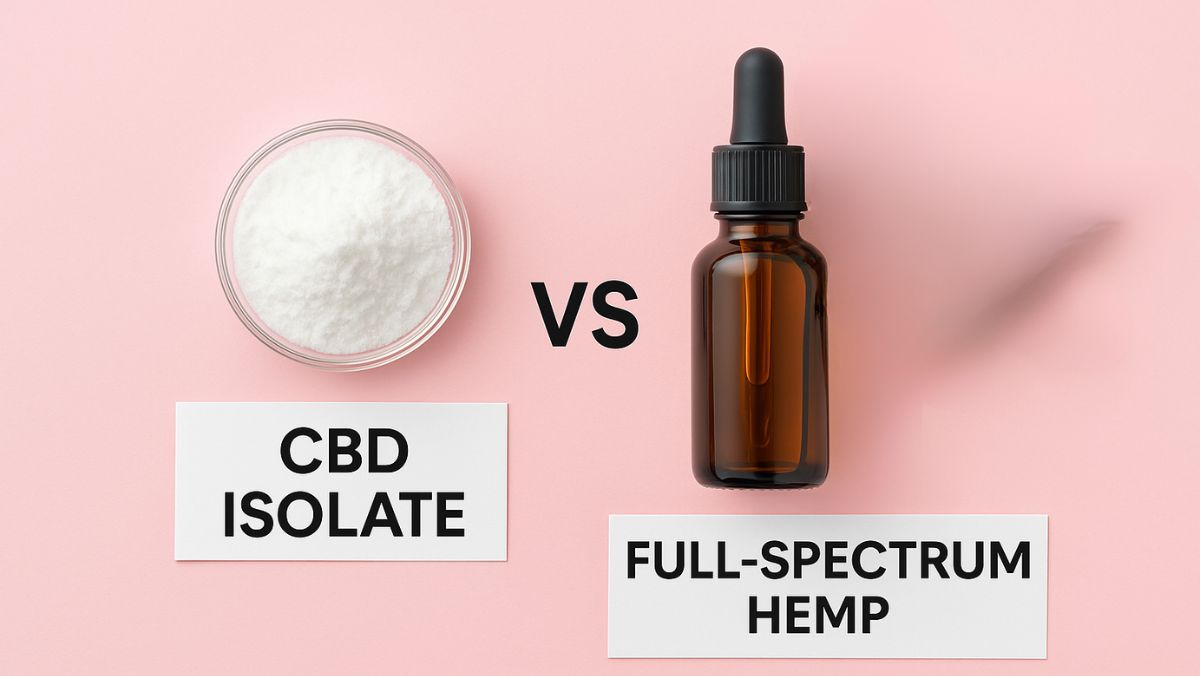Delta-8 THC, a mildly euphoric isomer of Delta-9 THC, is one of the fastest-growing compounds on the hemp market. HHC, on the other hand, belongs to a completely different chemical class known as hexahydrocannabinol. Both compounds are federally legal (Delta-8 varies state by state), and psychoactive.
Here we compare Delta-8 THC and HHC chemistry, effects, potency, and extraction methods.
What Are the Key Differences Between Delta-8 and HHC?
Delta-8 THC is a natural minor cannabinoid found in cannabis and hemp plants in trace amounts. It produces psychoactive effects like Delta-9 THC but has unique qualities.
HHC is also a minor cannabinoid that is considered to be semi-synthetic. However, HHC is not a tetrahydrocannabinol like Delta-8, Delta-9, and Delta-10 THC. HHC is short for hexahydrocannabinol, which is a different chemical class. It is a more stable, hydrogenated form of THC.
How Do Delta-8 and HHC’s Chemical Structures Differ?
Delta-8 THC has a chemical structure with a double-carbon bond almost identical to Delta-9 THC; only the bond is located on a different atom chain.
HHC is not a tetrahydrocannabinol like Delta-8 and belongs to another chemical compound class. Chemically speaking, that means HHC has no double atom bonds and includes hydrogen molecules instead.
What Are the Differences Between Delta-8 and HHC’s Effects?
Because of the varying existence of the double bond between Delta-8 and HHC, each cannabinoid interacts differently with receptors in the body.
Delta-8 produces a mild psychoactive experience that many users describe as smooth, subtle, and calming while also euphoric and uplifting. Delta-8 can reduce feelings of nausea and provides many known benefits of THC, including relaxation, euphoria, and pain relief.
HHC users report a unique gradual, euphoric onset followed by a smooth, calming experience. Many say HHC feels less energetic and more cerebral and other-worldly than Delta-8.
How Potent Are Delta-8 and HHC?
According to most consumers, Delta-8 is noticeably milder than Delta-9 and aligns closely with what some describe as “indica-like” effects due to its sedative properties. HHC offers a valuable psychotropic experience, but a less potent one than Delta-9 THC and even less potent than Delta-8.
How Are Delta-8 and HHC Made?
Delta-8 and HHC are minor cannabinoids, meaning they exist in trace amounts compared to CBD or Delta-9 THC. As a result, manufacturers don’t extract these compounds from the plant directly. Instead, manufacturers chemically create Delta-8 and HHC in quantities suitable for mass production.
Delta-8 Production
Processors extract CBD from hemp and convert it into Delta-8 THC using a blend of chemical solvents (like heptane) and acids (like hydrochloric) in a process called “isomerization.”
HHC Production
Most HHC is made synthetically from Delta-8 THC through a process called “hydrogenation.” Producers start with CBD, which they convert to Delta-8. Then they use two active catalysts to break apart Delta-8’s double-atom bonds and insert two hydrogen atoms, converting THC to HHC. While Delta-8 requires chemicals and solvents to act as catalysts, HHC conversion uses metals like palladium and nickel. Only third-party laboratory testing can reveal if manufacturers thoroughly removed these dangerous materials from the final product.
A key distinction between Delta-8 and HHC is HHC’s newly attached hydrogen atom makes it extremely shelf-stable and much less sensitive to heat and UV light. For example, HHC edibles won’t lose potency as they sit on the shelf.
Are Delta-8 and HHC Legal?
Delta-8 is a federally legal hemp derivative covered under the 2018 Farm Bill. However, due to its production methods and lack of comprehensive legislation, many states have introduced bills that explicitly prohibit Delta-8 and other minor cannabinoids made through isomerization. So far, 17 states, including Colorado, Washington, New York, and Michigan, have banned Delta-8.
HHC is not a tetrahydrocannabinol, so it doesn’t fall under the Substance I classification like Delta-9 and other forms of THC. HHC is also federally legal as a hemp derivative. However, as state and federal agencies continue to ban Delta-8 THC and other synthetic cannabinoids, some have also banned HHC.
What Kind of Delta-8 and HHC Products are Available?
Delta-8 is one of the fastest-growing compounds on the hemp market. It’s available in many cannabis and hemp-based products that consumers can inhale, ingest, and apply topically, including:
- Distillate cartridges
- Distillate syringes
- Vape cartridges
- Tinctures
- Oils
- Concentrates
- Gummies and edibles
- Beverages
- Flower
HHC is a more-recent entry to the hemp market, so fewer product offerings exist. Two common HHC product types on the market currently include:
Delta-8 and HHC Safety Issues
Producing Delta-8 and HHC involves solvents, acids, and metals that can be hazardous to workers and end-users if not properly washed from the formula. To prevent these issues, manufacturers must ensure the conversion from CBD to Delta-8 is as clean as possible. HHC processors must start with high-quality Delta-8 and properly wash their products of harmful metals. Ultimately, every brand must verify its end-products quality through full panel testing with a verified third-party laboratory.
Consumers who are concerned about residual chemical issues should only buy from trusted brands that thoroughly test their products and include a verified COA on their labels.
ACS Laboratory’s HHC metals panel tests for lead, palladium, arsenic, mercury, platinum, cadmium, nickel, and zinc. Learn more.
Will Delta-8 or HHC Show Up on a Drug Test?
Yes, Delta-8 shows up as THC on standard drug tests. While HHC is not the same chemical class as Delta-8 or Delta-9 THC, it can also lead to drug test failure.
Bottom Line
Delta-8 and HHC are minor cannabinoids making a major impact in the hemp-derived market. While there’s not a substantial difference between these compounds at first glance, their chemistry and electron structures reveal differences that impact their effects and potency. As these products become increasingly popular, brands must prioritize consumer safety by testing with laboratories that can accurately quantify potency and rule out residual solvents.
ACS Laboratory’s HHC potency test comprehensively analyzes 9R-HHC, 9S-HHC, 9-OH-HHC, 9R HHCP, and 9S-HHCP content. Start testing now.









.png)





.png)
.png)
.png)
.png)